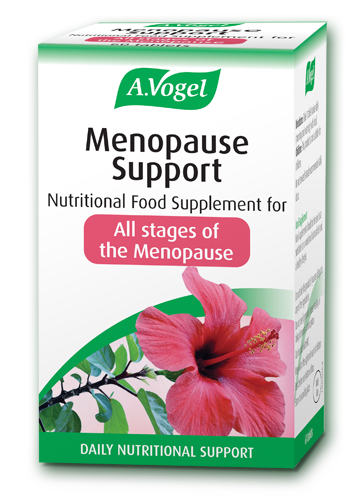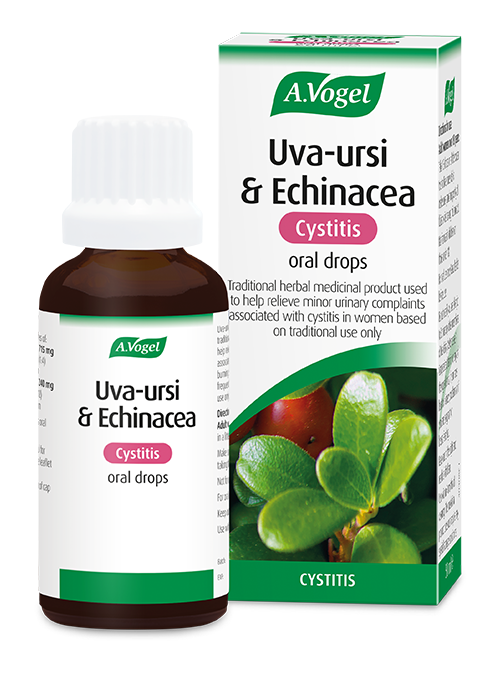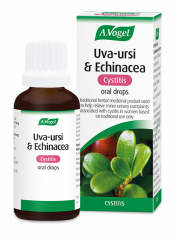What causes cystitis?
Cystitis is caused by a bacterial infection in the lower urinary tract or bladder. As the bad bacteria that causes the infection takes hold, common symptoms that can crop up include; frequent urination, burning upon urinating, cloudy or smelly urine or in more serious cases you may also notice some blood when you go to the loo or experience pelvic pain.
Women are more prone to cystitis and urinary tract infections then men, mainly due to anatomical differences which unfortunately can’t be avoided! But it seems that the risk may also get worse as we get older. Today, I discuss why cystitis may be more common during and after menopause and of course, what can be done to help put an end to the discomfort!
Why am I more prone to cystitis during peri-menopause?
Unfortunately, menopause is often associated with a long list of symptoms. Some women get off quite lightly whereas others seem to have a tougher time of it. But why does peri-menopause put us at a greater risk of cystitis?
- Fluctuating oestrogen – fluctuating levels of oestrogen are the main cause of most menopausal symptoms. We have oestrogen receptors located all over our body and your urinary tract is no exception! As oestrogen levels gradually fall it can affect the structure and function of your urinary tract, making you more susceptible to infections
- Physical changes – a number of physical changes during this stage in woman’s life can also make you more vulnerable to cystitis and urinary tract infections. As we get older, as a result of having babies and all the hormonal changes that we’ve had to endure throughout our time, the structure of the vagina and surrounding areas can change. This can impact the structure of the vagina directly (prolapses are more common, for example) but also the bladder and surrounding areas. This can make us more likely to experience problems such as incontinence, which can often make infections more likely. Vaginal atrophy, or dryness, is another big change that many women need to contend with and this is a common contributing factor when it comes to recurrent infections
- Changes in sex life – throughout the course of menopause most ladies hormones, and therefore their emotions and desires, are up and down and all over the place! As your body goes through the physical changes associated with menopause a lady’s sex life can change – sometimes for the better! However, often as we get older a drop in oestrogen levels can mean that certain areas become a little more sensitive, for example as a result of dryness. This is just something to be aware of and work with as these changes may also be a factor in recurring episodes of cystitis.

What about post-menopause?
Although on the whole, symptoms of menopause tend to calm down a year or two after your last period (this is when you are officially classed to be post-menopausal) research suggests that genitourinary symptoms (relating to the genital and urinary organs) can often remain affected longer-term. So what could be contributing to this?
- The backlash of vaginal dryness – many women complain of vaginal dryness during menopause, but actually this symptom can hang around a lot longer as oestrogen levels remain depleted post-menopause. If this isn’t managed properly, what we call vaginal atrophy can take hold. The dryness progresses into thinning walls which are then much more prone to damage and subsequent infection. This can contribute to uncomfortable symptoms, problems in your sex life but it can also give rise to more recurrent cystitis infections
- Changing pH – as oestrogen levels drop off, this can also affect the pH of the vagina. Normally, the correct balance of the pH in the vagina helps to fend off bad bacteria. However, if the pH changes, bacteria can take the opportunity to multiply and spread, which can increase your chances of contracting an infection
- The effects of bad habits – after the average age of menopause (45-55 years old) retirement is often looming and people tend to get a little more set in their ways. Some bad habits or routines could start to creep in and have a detrimental effect on your bladder health. Drinking less water, cooking from fresh less, eating more sweet treats, and drinking more caffeinated drinks can all make cystitis a more likely occurrence
- Other ailments can contribute – as well as all the diet and lifestyle habits that can often change as we get older, other health conditions can also crop up which can make things trickier down below! Some common examples include the following:
-
- Vaginal prolapse – changes to the structure in and around the vagina can increase the risk of cystitis. If the vagina or nearby structures affect the emptying of the bladder, stagnant pools of urine can act as perfect breeding grounds for bacteria. Pressure in this area can also be made worse with weight gain around the middle which is also often a common problem as we get older
-
- Mobility issues – issues with muscles and joints are much more common as we get older too. Although this may not be so directly related to the onset of cystitis (although the strength of the pelvic floor muscles may have an impact), they can still contribute. As we are less able to move, health habits like keeping properly hydrated, eating well and going to the toilet as and when we need to can all slip

-
- Diabetes – as we get older the threat of diabetes often becomes more prominent. As blood sugar regulation slips, higher levels of sugar in the urine can create a more suitable breeding ground for bacteria.
Home helps
If cystitis is getting you down, firstly, there are a number of home habits which can help to control the symptoms:
Diet
As above, slipping habits can make a big difference to your health. Aim to eat fresh and avoid processed ingredients loaded full of sugar. Instead, load up on fresh foods, drink plenty of water and avoid too much caffeine which can all help to support your blood sugar as well as your immune responses. Golden Rod Tea can also make a helpful alternative if you fancy a warm cuppa
Manage stress
Stress can have a surprising effect on the likelihood of cystitis. It can have a detrimental effect on our immune system (which we rely on to help keep bad bacteria at bay) but stress may also have a major role to play in cases of interstitial cystitis when infections don’t seem to be at the root of the cause
Move more
Moving more will help to keep your muscles and joints fit and healthy. This means you can make regular trips to the bathroom to empty your bladder, (or the kitchen to make healthier meals!), but this will also help to keep other muscles working away, for example in and around the pelvic floor which can help to keep things in good working order
Keep a tabs on other conditions
If you have diabetes then it’s important to regulate and manage the condition through diet and lifestyle as much as possible to stop it contributing to other issues such as cystitis. Antibiotics may also be problematic if you suffer from recurrent infections as they can upset the balance of good bacteria in your gut, so it may be worth discussing with your doctor how necessary they are, and what else could be done to help.
Rescue remedies
If symptoms are getting you down, then alongside some home helps, some natural remedies can also help to keep troublesome symptoms at bay:
Menopause Support

Menopause Support is a herbal remedy suitable for all stages of the menopause. It contains soy isoflavones which can help to gently restore some balance to your oestrogen levels, which in turn, can help to calm any symptoms which are cropping up as a result of those fluctuating hormones. You are considered to be officially through the menopause after a year or two of not having any period, so after this time, other remedies may be more suitable instead
Sea Buckthorn oil
After menopause, when your hormones have started to calm, dryness is often one of the main contributors to cystitis. Sea Buckthorn oil capsules, or omega-7 can help to keep a number of problems caused by dryness to a minimum
Uva-ursi
Uva-ursi is a traditional herbal remedy used to help relieve the symptoms of urinary tract infections. If an infection catches you off guard, this can be taken to help get the symptoms back under control.
Uva-ursi & Echinacea Cystitis Oral Drops. Cystitis Treatment for Women
£12.99 (50ml) Get it tomorrow, 3rd July.











